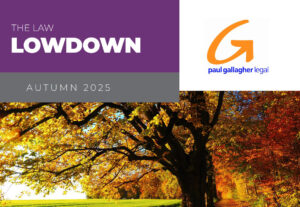The Government announced a proposed increase of the trustee tax rate (from 33% to 39%) in Budget 2023.
This change, due to take effect from 1 April 2024, would set the rate at which trustee income is taxed at the same as the top individual tax rate.
The intention here is to prevent taxpayers from achieving a 6% tax saving by holding income within a Trust, rather than distribution of the income to beneficiaries who are on the top (39%) tax rate.
These kinds of changes to tax rates are often triggers for reviews of asset planning structures. This particular change may cause some trustees to review the continuing usefulness of their Trust.
We thought it would be helpful therefore to go over some of the reasons why Trusts may continue to be useful. Indeed these reasons may apply to both existing Trusts as well as to situations where a new Trust is being considered.
These reasons include:
- Income splitting: This purpose will remain relevant following the proposed trustee tax rate increase. It will still be possible in many cases to distribute income to beneficiaries who are on a lower tax rate (e.g. 33%, 30%, 17.5% or even 10.5%) tax rate.
- Setting aside for specific purposes: Trusts can be used to set aside assets and derived income for a specific purpose, such as a child’s education. The trustees, not the beneficiary, will have control over the assets.
- Protection of specific assets: A trust may also provide a way to protect specific assets, such as a family batch, for passing down to future generations.
- Creditor protection: Assets held in a Family Trust may be protected from claims by personal creditors of the beneficiaries. This protection can be compromised however in certain circumstances including a failure to properly administer the Trust, or if there was an intention to defeat creditors in the Trust’s initial settlement.
- Protecting property against estate claims: Trusts can be used to protect against estate claims after death. Conversely, assets held in your own name can potentially be subject to claims by family members under the Family Protection Act 1955.
Changes to the Trusts legislation have imposed stricter requirements on Trustees in the ongoing administration of Trusts. We will outline these in our next Newsletter.
Feel free to contact anyone at our office if you want to follow up this article in any way.



